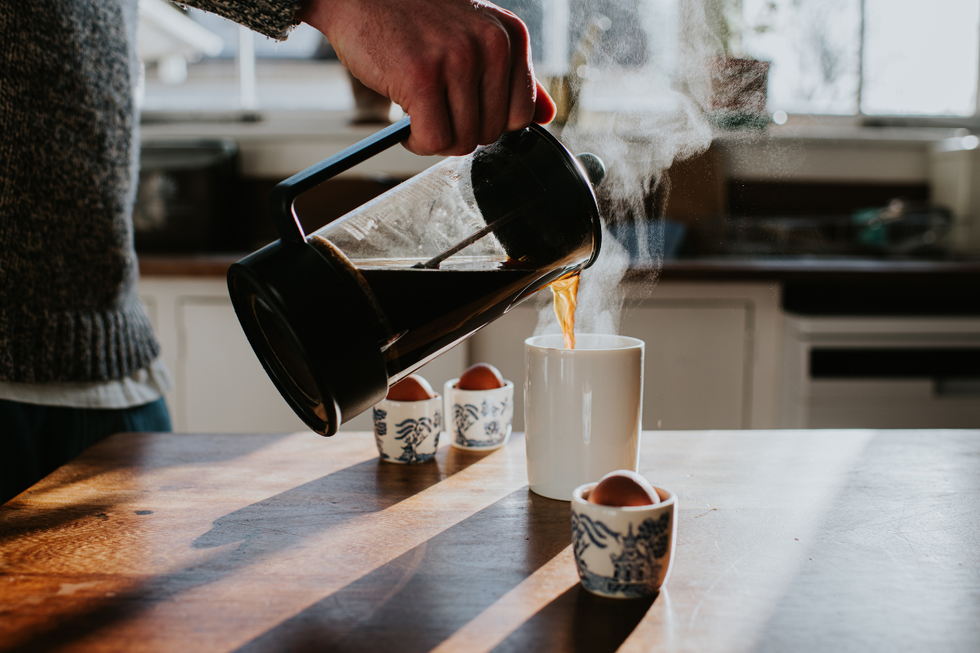Healthier ageing tied to increased coffee intake in study of 50,000 – how much should you drink?
Other caffeine sources, like cola, were more closely associated with significantly decreased odds of healthy ageing
Don't Miss
Most Read
Like an addictive drug, coffee has established a poor reputation for fuelling anxiety, in addition to exacerbating sleep disturbances and causing blood pressure to skyrocket. As a result, doctors have deterred many from over-consuming the morning beverage.
But a new study presented at the American Society for Nutrition meeting has found that women who consumed high amounts of caffeine, primarily from coffee, had 13 per cent higher odds of keeping your mind sharp and strong - both physically and mentally.
The research, which assessed more than 47,000 female nurses for several decades, found that women who consumed the most caffeine (which almost equates to around seven eight-ounce cups of coffee per day) showed the greatest benefits for reaching age 70 with good health.
To qualify as a "healthy ager", women required to be free of 11 chronic diseases including cancer, Type 2 diabetes, heart disease, kidney failure, Parkinson's disease and multiple sclerosis. They also needed to report no cognitive impairment or memory problems.

Those who classified as having aged well were those free of 11 chronic diseases including cancer, Type 2 diabetes, heart disease, kidney failure, Parkinson's disease and multiple sclerosis
|GETTY
Just over 3,700 women met the criteria for healthy ageing, which was defined as being 70 or older with good physical and mental health. From this, researchers found a correlation between caffeine consumption when women were between 45 and 60 years old and their likelihood of healthy ageing.
Every few years during the study, participants answered detailed questions about their diets, including consumption of coffee, tea and cola drinks.
The scientists then examined how many women were still alive and met their definition of healthy ageing in 2016.
After adjusting for factors such as overall diet, exercise levels and smoking habits, those consuming the most caffeine had significantly better outcomes.
LATEST DEVELOPMENTS
Drinking tea or decaffeinated coffee was not associated with healthy ageing, the researchers found. Professor of nutritional sciences at the University of Toronto Sara Mahdavi suggested this may be because participants generally consumed less tea and decaffeinated coffee overall.
Tea and decaffeinated coffee also contain less caffeine, and tea has different plant compounds from regular coffee, which might account for the results.
Meanwhile, drinking cola, another source of caffeine, was associated with significantly decreased odds of healthy ageing. The study found that caffeine consumption, which came mostly from coffee, showed the strongest correlation.
Consequently, regular coffee appeared to be the key factor rather than other caffeinated beverages in promoting long-term health benefits.

The study's lead author said that their thesis did not necessarily indicate that drinking that much will benefit everyone, nor that it is healthy to do so
|GETTY
In a study of more than 46,000 US adults published in May, researchers found that those who consumed one to three cups of coffee per day were about 15 per cent less likely to die within the next nine to 11 years than those who didn't drink coffee. That benefit disappeared for people who added more than about a half teaspoon of sugar to their coffee.
Research has also suggested that people who drink coffee regularly have lower risks of heart disease, Type 2 diabetes, Parkinson's disease, liver disease, osteoporosis and some types of cancer - even slashing the risk of early death.
However, these kinds of studies can't prove cause and effect, said associate professor of public health and medicine at the University of California Aladdin Shadyab.
There are plenty of other, more evidence-backed ways to boost your health and longevity, he explained, such as following a balanced diet, exercising regularly, getting enough sleep and having an active social life.
Additionally, Dr Mahdavi cautioned that while drinking up to seven small cups of coffee per day was associated with healthy ageing in her study, that doesn't necessarily mean that drinking that much will benefit everyone, nor that it is healthy to do so.
Research in other groups of people suggests that the health benefits of coffee may plateau or even dip when they drink more than three to four cups per day.
The NHS advises that a moderate daily caffeine intake of up to 400mg is safe for most adults, which is roughly equivalent to four cups of brewed coffee. Before making any changes to your daily diet, please consult your GP.











